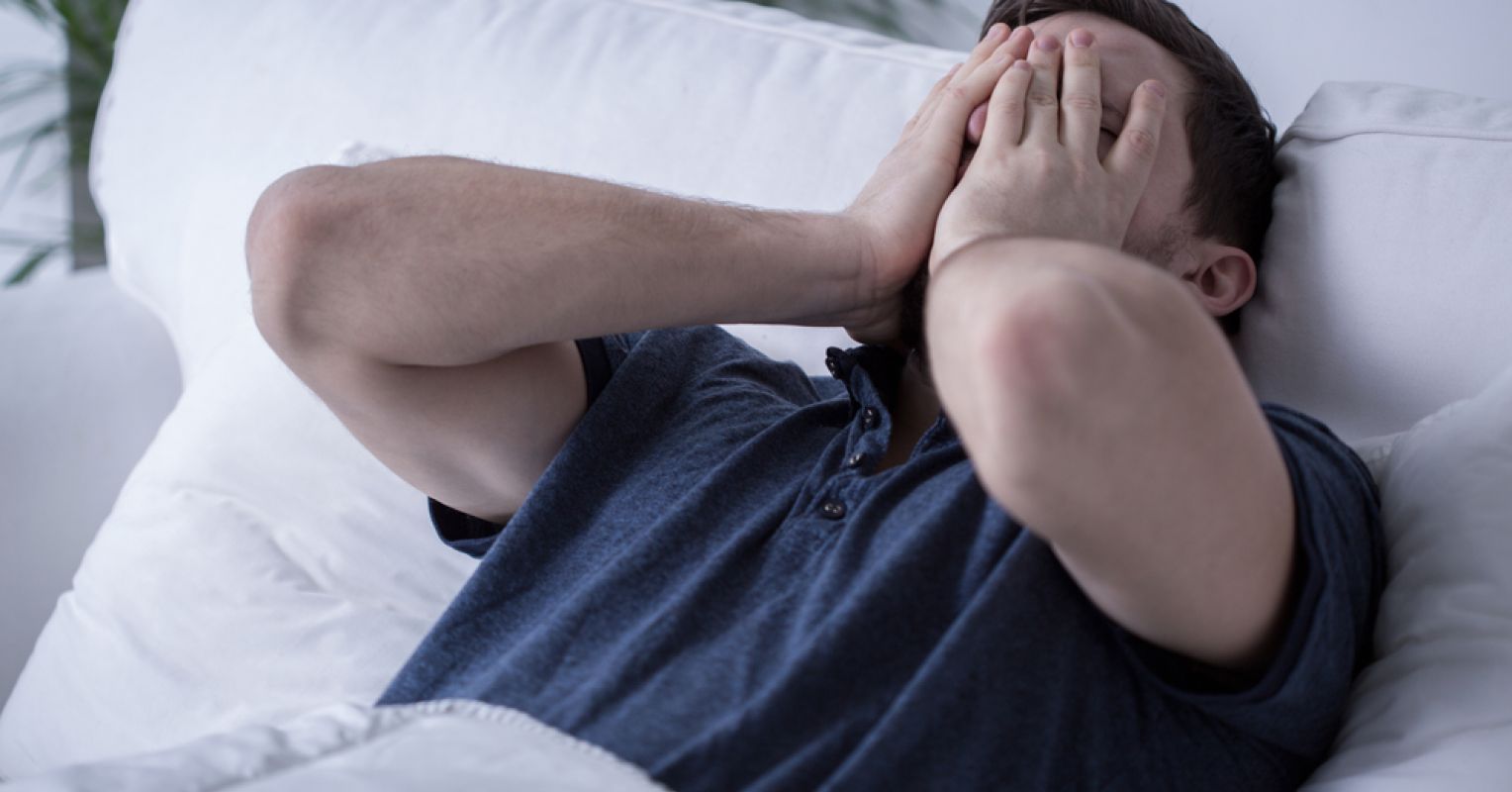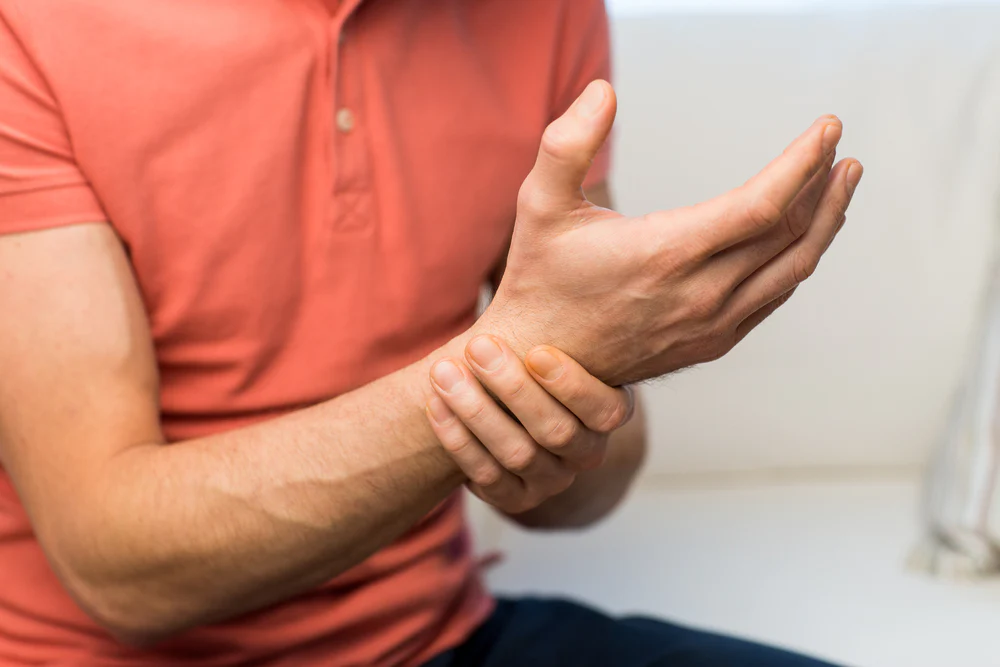Sleep Disorders and Conditions
Why Does My Body Twitch When I Sleep
Have you ever been in the middle of falling asleep and suddenly felt like you were falling and then jerked awake? This phenomenon is known as a hypnic jerk or sleep start, and it can be quite startling. But what exactly causes this to happen? In this blog, we will explore the science behind hypnic jerks and what you can do to reduce their frequency.
What is a hypnic jerk?
A hypnic jerk is an involuntary muscle movement that occurs just as you're falling asleep. It usually involves a sudden twitch or jerk of one or more muscles, often accompanied by a feeling of falling or a loud noise in your head. These jerks are most common in young adults and tend to decrease with age.
What causes hypnic jerks?
While there is no clear consensus on what causes hypnic jerks, several theories have been proposed. One theory is that it is a result of the body's natural transition from wakefulness to sleep. As your body relaxes and your muscles begin to loosen, the sudden movement may be a reflex response to the feeling of falling. Another theory suggests that hypnic jerks are caused by the brain misinterpreting muscle relaxation as a signal that the body is falling, and therefore sends a signal to the muscles to jerk in order to regain balance.
Certain factors may increase the likelihood of experiencing hypnic jerks, including anxiety, stress, caffeine intake, and strenuous exercise before bedtime. Additionally, certain medications such as antidepressants and stimulants have been known to increase the frequency of hypnic jerks.
Are hypnic jerks harmful?
Fortunately, hypnic jerks are usually harmless and do not require treatment. In rare cases, however, they may be a symptom of an underlying sleep disorder, such as periodic limb movement disorder or restless leg syndrome. If you are experiencing frequent or severe hypnic jerks, it may be a good idea to consult with a sleep specialist to rule out any underlying conditions.
How to reduce the frequency of hypnic jerks?
While there is no guaranteed way to eliminate hypnic jerks, there are several strategies that may help reduce their frequency:
Reduce caffeine intake: Caffeine is a stimulant that can interfere with the natural sleep process and increase the likelihood of hypnic jerks. Try to avoid caffeine for at least a few hours before bedtime.
Practice relaxation techniques: Practicing relaxation techniques such as deep breathing, progressive muscle relaxation, or yoga may help reduce anxiety and stress levels, which can trigger hypnic jerks.
Stick to a consistent sleep schedule: Maintaining a consistent sleep schedule can help regulate your body's natural sleep-wake cycle, which may help reduce the frequency of hypnic jerks.
Avoid strenuous exercise before bedtime: Strenuous exercise before bedtime can increase your body's adrenaline levels, which may interfere with the natural sleep process and increase the likelihood of hypnic jerks.
Consider medication adjustments: If you are taking medications that have been known to increase the frequency of hypnic jerks, talk to your doctor about adjusting your dosage or switching to a different medication.
Hypnic jerks are a common phenomenon that can be startling but are usually harmless. While the exact cause is not known, several theories suggest that it may be a result of the body's natural transition from wakefulness to sleep or the brain misinterpreting muscle relaxation as a signal that the body is falling. To reduce the frequency of hypnic jerks, try reducing caffeine intake, practicing relaxation techniques, maintaining a consistent sleep schedule, avoiding strenuous exercise before bedtime, and considering medication adjustments if necessary. If you are experiencing frequent or severe hypnic jerks, it may be a good idea to consult with a sleep specialist to rule out any underlying conditions.
It's important to note that while hypnic jerks are usually harmless, they can be a symptom of an underlying sleep disorder such as restless leg syndrome or periodic limb movement disorder. These conditions can affect the quality of your sleep and lead to daytime fatigue and other health problems. If you are experiencing frequent or severe hypnic jerks, it's important to talk to your doctor or a sleep specialist to determine if there is an underlying condition that needs to be addressed.
In conclusion, hypnic jerks are a common and usually harmless phenomenon that can be quite startling. While the exact cause is not known, several theories suggest that it may be a result of the body's natural transition from wakefulness to sleep or the brain misinterpreting muscle relaxation as a signal that the body is falling. To reduce the frequency of hypnic jerks, try reducing caffeine intake, practicing relaxation techniques, maintaining a consistent sleep schedule, avoiding strenuous exercise before bedtime, and considering medication adjustments if necessary. If you are experiencing frequent or severe hypnic jerks, it's important to talk to your doctor or a sleep specialist to determine if there is an underlying condition that needs to be addressed. With the right strategies and care, you can improve your sleep quality and reduce the occurrence of hypnic jerks.
Sleep Disorders and Conditions
Sleepless in Psychiatry: Unraveling the Role of Sleep in Neuropsychiatric Illnesses
Sleep Disorders and Conditions
When Sleep Disorders Clock In: Insomnia’s Impact on Productivity of Young Adults
Sleep Disorders and Conditions
Hypnic Jerk: Why Do I Twitch in My Sleep?
Sleep Disorders and Conditions
When your Arm Falls Asleep: Causes and Treatments
Sleep Disorders and Conditions
Why Do We Twitch In Our Sleep? The Mystery of Hypnic Jerks Unveiled
Sleep Disorders and Conditions







